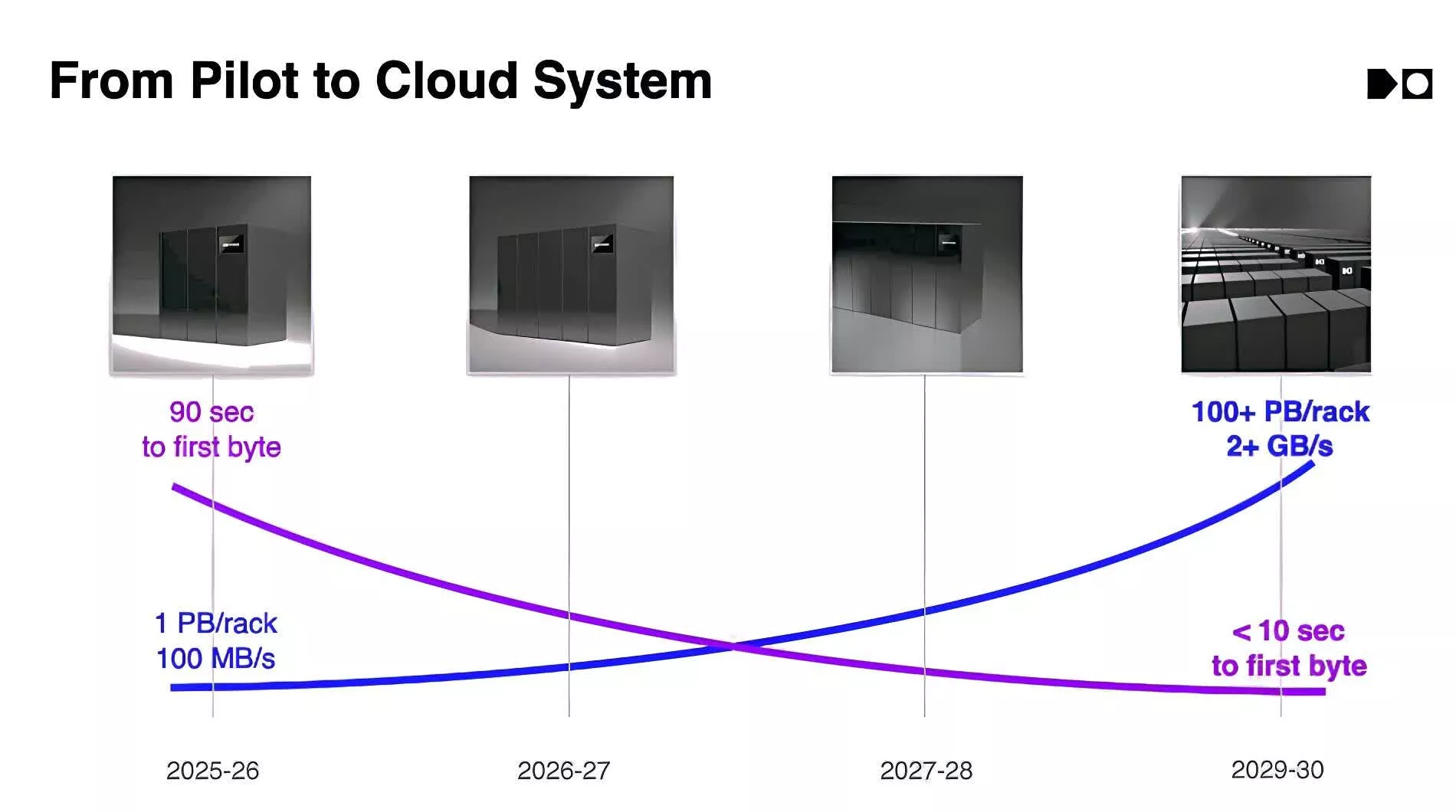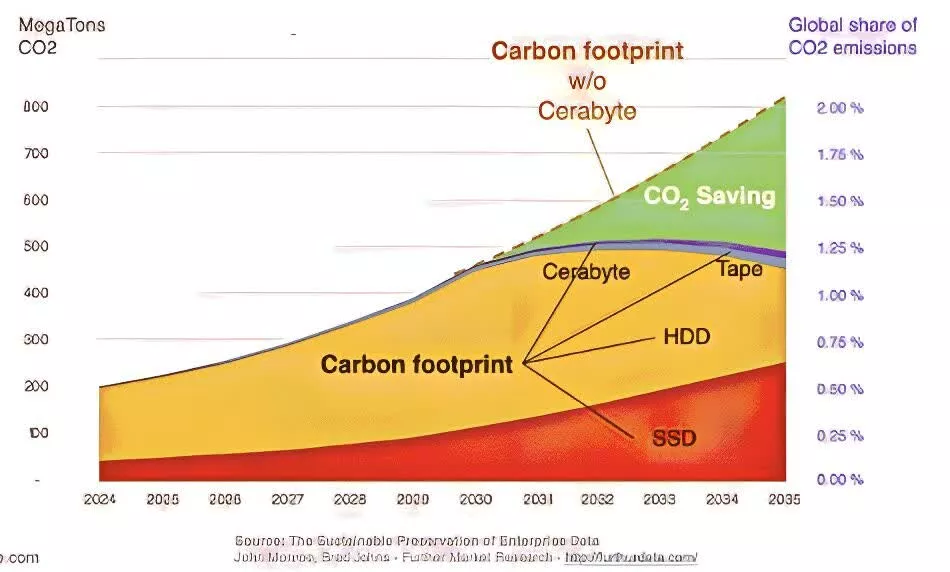Ahead-looking: German storage startup Cerabyte has an formidable goal: to create storage racks in a position to maintain greater than 100 petabytes of information by 2030. The corporate intends to make use of its laser-etched glass-ceramic expertise for the duty, which it says lasts greater than 100 years in comparison with conventional tape storage’s 7 to 15-year lifespan.
Talking on the A3 Tech Reside convention in Munich lately (through Blocks and Recordsdata), Cerabyte CMO and co-founder Martin Kunze talked extra concerning the firm’s next-generation storage tech. It encodes knowledge by firing femtosecond lasers at a 500- to 100-atom-thick ceramic nanolayer on skinny glass tablets, etching everlasting nanodots that high-resolution cameras can learn optically.
The glass-ceramic sheets slot into tape-library-style cartridges, that are moved round inside cupboards utilizing robotic arms.
Kunze mentioned that the pilot 1 PB per rack system, which has a 2025/2026 date, goals for a 90-second time to the primary byte and solely 100MBps in sustained bandwidth. By the point the 2029/2030 mannequin arrives, these figures are anticipated to have elevated to over 100PB per rack, lower than 10 seconds to the primary byte, and a switch charge of over 2 GBps.

Cerabyte additionally believes that its femtosecond laser writing expertise might evolve into particle beam matrix tech, decreasing the written bit space spot measurement from 300 nm to three nm. Utilizing a helium ion beam for the writing, Cerabyte predicts {that a} rack holding as much as 100,000 PB might be attainable by 2045, although some are skeptical about this theoretical declare.
In comparison with the likes of Microsoft’s Venture Silica, Holomem, and DNA storage, Cerabyte says its expertise provides advantages corresponding to better longevity, decrease price per TB, and quicker entry occasions.

Kunze mentioned that Cerabyte’s resolution might ship knowledge at 1-2 GBps versus tape’s 1 GBps, and value $1 per TB in opposition to tape’s $2 per TB. He additionally claimed that changing tape with Cerabyte’s tech would cut back the carbon footprint of world knowledge storage from 2 p.c of world CO2 emissions to 1.25 p.c.

Earlier this yr, Cerabyte confirmed how a sliver of its archival glass might survive being plunged right into a kettle full of boiling salt water and being roasted at 250°C (482°F) in a pizza oven.

